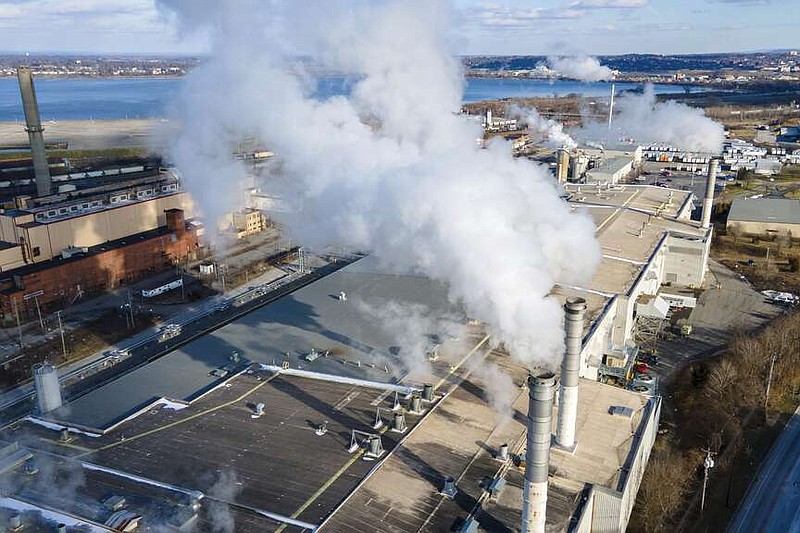WASHINGTON -- The U.S. economy grew at a solid 3.4% annual pace from October through December, the government said Thursday in an upgrade from its previous estimate. The government had previously estimated that the economy expanded at a 3.2% rate last quarter.
The Commerce Department's revised measure of the nation's gross domestic product -- the total output of goods and services -- confirmed that the economy decelerated from its sizzling 4.9% rate of expansion in the July-September quarter.
But last quarter's growth was still a solid performance, coming in the face of higher interest rates and powered by growing consumer spending, exports and business investment in buildings and software. It marked the sixth straight quarter in which the economy has grown at an annual rate above 2%.
For all of 2023, the U.S. economy -- the world's biggest -- grew 2.5%, up from 1.9% in 2022. In the current January-March quarter, the economy is believed to be growing at a slower but still decent 2.1% annual rate, according to a forecasting model issued by the Federal Reserve Bank of Atlanta.
Thursday's GDP report also suggested that inflation pressures were continuing to ease. The Federal Reserve's favored measure of prices -- called the personal consumption expenditures price index -- rose at a 1.8% annual rate in the fourth quarter. That was down from 2.6% in the third quarter, and it was the smallest rise since 2020, when covid-19 triggered a recession and sent prices falling.
Stripping out volatile food and energy prices, so-called core inflation amounted to 2% from October through December, unchanged from the third quarter.
The economy's resilience over the past two years has repeatedly defied predictions that the ever-higher borrowing rates the Fed engineered to fight inflation would lead to waves of layoffs and probably a recession. Beginning in March 2022, the Fed raised its benchmark rate 11 times, to a 23-year high, making borrowing much more expensive for businesses and households.
Yet the economy has kept growing, and employers have kept hiring -- at a robust average of 251,000 added jobs a month last year and 265,000 a month from December through February.
At the same time, inflation has steadily cooled: After peaking at 9.1% in June 2022, it has dropped to 3.2%, though it remains above the Fed's 2% target. The combination of sturdy growth and easing inflation has raised hopes that the Fed can manage to achieve a "soft landing" by fully conquering inflation without triggering a recession.
Thursday's report was the Commerce Department's third and final estimate of fourth-quarter GDP growth. It will release its first estimate of January-March growth on April 25.
A separate report Thursday showed that U.S. consumer sentiment rose toward the end of March, supported by strong stock-market gains and expectations that inflation will continue to ease.
The University of Michigan's sentiment index climbed to 79.4 from 76.5 earlier in the month, reaching the highest level since mid-2021, according to the final March reading. The 2.9-point gain from the preliminary reading was the biggest intramonth increase since August 2022.
Americans expect prices will climb at a 2.9% rate over the next year, compared with the 3% expected earlier in the month. They see costs rising 2.8% over the next five to 10 years, the lowest since September.
"Not only did inflation expectations fall sharply, so did inflation uncertainty," Joanne Hsu, director of the survey, said in a statement, referring to progress in recent months. "As such, consumers are now broadly in agreement that inflation will continue to slow both over the short term and the long term."
Hsu said recent readings indicate sentiment is stabilizing as consumers await further direction on the economy pending November's presidential election. Like the preliminary report, sentiment improved notably among both Republicans and Democrats, but it fell for independent voters.
Consumers' views about their current personal finances rose to the highest level in over two years, while their present outlook for the economy improved to the best since July 2021. The S&P 500 index has climbed to a record high this month on optimism about corporate earnings.
Both the current conditions gauge and measure of expectations rose to the highest levels since mid-2021.
Information for this article was contributed by Paul Wiseman of The Associated Press and Vince Golle of Bloomberg News (WPNS).

